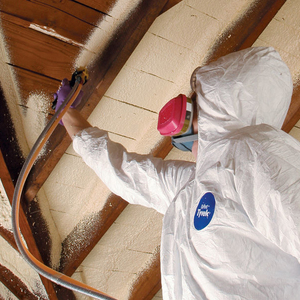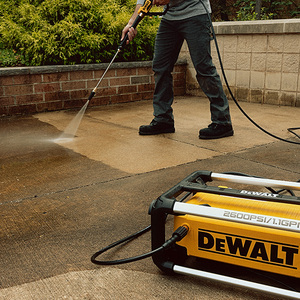What percentage of framing contractors walk walls?
Hello folks, been a while since I posted out here. I am a contractor, years of experience, good reputation here in central montana with my past clients and professional associates, I do a lot of framing and have also done a fair amount of commercial remodeling ranging from Montana down to Texas and New Mexico. So much by way of (re)introduction. Recently I was working on a house with a couple associate contractors, and I was walking a 9′ wall between a long series of monotrusses with 2′ heels, installing roll blocking and sheeting between the trusses. A representative of OSHA showed up, took film footage of me walking on the wall/between trusses without a harness on, and subsequently imposed a fine for $1,600, later reduced to $800 for working “at elevation” “without fall protection.” So OSHA is now dictating to independent contractors/sole proprietors how to frame buildings. They want everything done off ladders and essentially are dictating that walking on walls is illegal and will be fined along with any other work above 8′ performed without a harness. Now I have worked on a lot of residential frames over the last 6 years and I walk walls up to 10′ height routinely, as do all the other contractors that I have worked with or seen working. So I would estimate that in my area, 98 to 99% of houses are framed by framing contractors that walk walls routinely. I view wall-walking to be virtually universal to residential western platform framing, for laying out joists/trusses, landing beams, setting girders, setting trusses, etc. How many framers don’t walk walls to set trusses? So I would like to hear other contractors’ opinions in this matter. To say the least I am shocked and appalled to see a branch of the federal bureaucracy purposing to dictate to me and other experienced and educated colleagues what building techniques we can and cannot use, and rendering illegal and punishable by fine, a building technique that I believe is very well established and in nearly universal use throughout the United States.



















Replies
Welcome Back
I framed on houses in the late 70's and can tell you that I did "walk" walls.
But.
I have bad balance-love heights but am not productive up on narrow.
So, that pretty much made me the cut man, until it was a must for me to be up there.
As an employee, I would side with the law, it was set up to protect all of us..............just so happens that many of us don't believe in it. Remember, you got the knack, not all do.
When safety introduces more situations for injury, you have my full support.
All I can say is:
Who is John Galt?
What in the hell are you asking me for (who is john galt)?
Never heard of the guy.
Did I make a typo that you thought said john galt?
Beats the hell outta me, never met him-surely don't know him.
He own you money or something?
Dudly is hung up on Ayn Rand. Galt was a character in "Atlas Shrugged", one of the stupider books she wrote.
So............
I saw this reference to john galt b/4, but evidently not in this thread?
If it was do trying to stick some worthless non information into a thread trying to be cute, then I'd guess...........
I'd be just telling him in a nice way of course .......
to kiss my white hind end.
but I digress.
Wall walking
Grew up in the trade where wall walking was necessary to work efficiently.
I was never as proficient on the walls as my father (he was way too close to being part ape), but I managed.
Now I don't do as much framing as I have in the past, but we still need to get up on the walls at least part of the time. Usually when setting trusses with a crane, I'll have one guy on a wall, I'll be in the center of the trusses bracing and the third man is working off a ladder or scaffold - mostly because he is not comfortable walking on the walls and I am fine with that.
I just don't like OSHA telling me how to do a job that I have been doing longer then he's been out of diapers.
OSHA has its place, but with it's sporadic enforcement, it is moving in the direction of just putting as many contractors out of business as it can so that it will have a smaller pool of contractors to monitor.
Terry
I've always understood that the owner of a company is exempt from OSHA rules. His employees are not and the owner is responsible for them following the rules.
One can easily forsee situations where an employee framer would be harassed and harangued by both an owner and his framer peers to walk a wall even though he's scared to death.
Re: owners being exempt
sapwood wrote:
I've always understood that the owner of a company is exempt from OSHA rules. His employees are not and the owner is responsible for them following the rules.
One can easily forsee situations where an employee framer would be harassed and harangued by both an owner and his framer peers to walk a wall even though he's scared to death.
Yeah I am a sole proprietor with no employees. I typically work by myself or with other contractors who I network with. That's my problem. There are people who jump through the loops and get contractor's license here in Montana, not a hard thing to do here since there are no tests to take, just buy insurance, list your tools, get a local business license ($25) and typically you are good to go. So then they work with "alpha" contractors and are basically under control and pressure to produce, and as such qualify as employees if an accident happens. Due to this OSHA is reacting to this trend with excessive force, trying to virtually make it illegal for contractors to collaborate on any job. Like if one guy is cutting and another guy up in the air nailing, or two partner subcontractors running trusses and sheeting a roof, or whatever. They will just say one is an employee. I believe it has to do with workman's comp claims by disgruntled or injured contractors who were working with a dominant contractor who basically exerted control on the job site. So yeah in that situation there is a problem. But on the other hand it is perfectly possible for independents to collaborate without either controlling the other. If both have enough experience, they both pretty well sleepwalk through most of teh work because they both know the drill. OSHA is trying to deny or ban that just to make their work simpler. They want a world of employers and employees.
JunkHound will report
My grandfather died from a ladder fall while painting a house.
2 years ago I did some eave work for my mother (2000 mi away) and had to take along harness and rope or mom would not let me on a ladder ( this is 80 years after her dad died!)
'nuff said....
Funny thing, these safety regulations.
I think what's "safe" for one worker is not for the next. And if we all just took responsibility for the results of our own actions/decisions, this would all sort itself out and we'd be free to work however we want.
But we don't take that responsibility. We get injured - sometimes through no fault of our own - and we expect there to be an ambulance to drive us to the emergency room, doctors to stitch us back up, therepists to recondition our bodies so that we can go back out there and walk that wall as soon as we heal. Sometimes we even take advantage of "disability" classifications and expect someone to send us a check every month for the rest of our lives.
This is reality.
So organizations like OSHA have to come up with policies like "no wall walking" as sort of an average of what constitutes safe work habits, in the name of keeping costs down for all those programs that insure medical, rehabilitative and disability benefits for the average working person (who is usually doing the best they can to help feed and raise up the next generation).
Same people who gripe often and loud about OSHA are often the same folks who do everything they can to avoid paying taxes.
Nothing's free.
Momma always siad, "If
Momma always siad, "If everybody jumps off the bridge, are you gonna jump too?"
If 100% of teh people steal, it still doesn't make theft acceptable
The point I am making is it doesn't matter if everyone else in the whole country walks walls, if it is illegal, its illegal.
The better question is, does the law really apply to you and people in your situation.
Employer/employee relationships are not some willy nilly "I can call you what I want" standard. There are specific guidelines that determine if you are an employee or an independent contractor.
Do you set you own work hours? Do you come and go as you please? Eat lunch when you want?
Do you provide all your own tools?
Do you have any risk in the project?
Do you determine how the work will be performed?
How do you get compensated? Are you paid by the hour you work?
What they all basically come back to is independent contractors work at their own pace on their own time in any order they want to with their own tools and they generally get paid by the job and have some level of risk of losing money.
Employees are told when to show up, when to eat, when to leave, what to do, the order to do it in, where it will be done, how it will be done and are provided at least some of the tools to do it with.
You may think you are an independent contractor but you are really an employee.
Among other things, the IRS cracks down on companies that try to make all their employees "contractors" to avoid payroll tax. When one uses "contractor" status to simply duct taxes and regulations the autoriities justifiably take exception to that.
That's just the way things are now. You can't walk on walls without fall protection, I can't work in an energized electrical panel without an arc flash suit on. Doesn't matter if I've worked in a thousand hot panels and pieces of switchgear without getting hurt over the last 30 years, if I take the deadfront off without arc flash protection on (which takes manual dexterity to just about zero), OSHA can levy some pretty stiff fines. And if we bid on state jobs there had better be a random drug testing program in place. In my opinion it has more to do with saving money on BWC claims than on insuring worker safety.